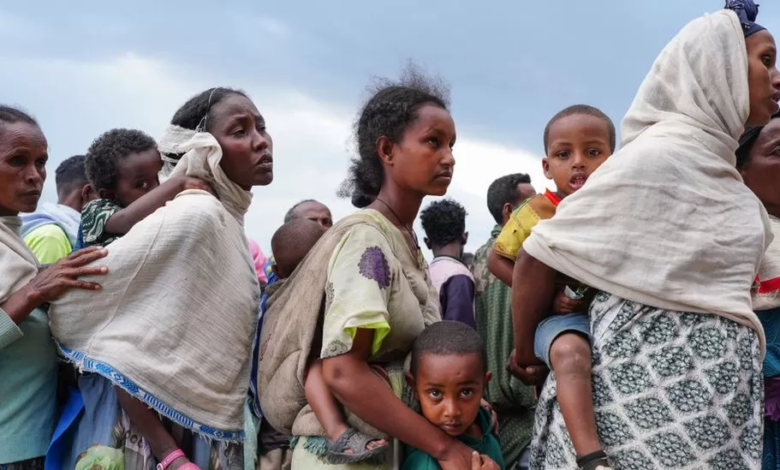War, Drought And Flooding Make Plight Of Women And Girls In Ethiopia Worse
Wartime sexual violence and climate-induced scarcities increasingly make life difficult for the female gender in the country, say the United Nations.

Women and girls are paying a “high price” in the many crises facing Ethiopia, the United Nations Population Fund (UNFPA) has revealed.
In the south of the country 25 million people have been adversely affected by ‘climate shocks’, first drought then flooding. In the north, a war rages between Ethiopian forces and the Tigray People’s Liberation Front (TPLF).
The effects of these, and the Covid 19 crisis, on women and girls have been “disproportionate” The UN agency said in a report released on Tuesday, Oct. 25.
The war has destroyed health facilities, causing “a shortage of medical supplies and healthcare providers-many of whom have been displaced by the hostilities,” which have in turn disrupted needed access to sexual and reproductive health services.
Climate shocks such as drought and flood have also taken an undue toll on women who are largely responsible for household chores associated with water.
Gross sexual slavery and violation against women in the Tigray war.
Since the Tigray war broke out in November 2020, women and girls have been the unfortunate subjects of wartime sexual violence from both sides of the conflict with violent crimes ranging from “rape, gang rape, sexual slavery, sexual mutilations and other forms of torture, often using ethnic slurs and death threats” perpetrated against them.
Amnesty International reported that health facilities in Tigray registered a total number of 1,288 cases of gender-based violence between February and April 2021 while “Adigrat hospital recorded 376 cases from the beginning of the conflict to June 2021.”
While the recorded figures may seem alarming already, Amnesty International says that a large number of rape victims did not visit health facilities to report their ordeals, hence, the possibility that the known figures are only “ a small fraction of rapes in the context of the conflict.”
The UNFPA in its report on Tuesday says that the women and girls who have been victims of wartime sexual violence in Ethiopia cannot enjoy “comprehensive services including psychosocial support,” as their access to such services has been eroded.
In addition, it says that other health services crucial to the well-being of women and girls such as “maternal healthcare, including emergency obstetric care to address life-threatening pregnancy complications, has been critically compromised.”
The climate crisis in the region has also aggravated the impacts of the disaster on women and girls.
In a report released by Wateraid in August 2022, the nongovernmental organisation said that the drought in the horn of Africa (where Ethiopia is located) has had a devastating impact on women and girls who due to assigned gender roles are responsible for fetching water in their respective households, thereby exposing them to untold harm.
“They have to walk longer and further to collect water,” the report said, “this increases the risk of sexual abuse and of girls missing out on education, also due to the lack of access to water in school during their periods, or even dropping out of school altogether.”
Support Our Journalism
There are millions of ordinary people affected by conflict in Africa whose stories are missing in the mainstream media. HumAngle is determined to tell those challenging and under-reported stories, hoping that the people impacted by these conflicts will find the safety and security they deserve.
To ensure that we continue to provide public service coverage, we have a small favour to ask you. We want you to be part of our journalistic endeavour by contributing a token to us.
Your donation will further promote a robust, free, and independent media.
Donate HereStay Closer To The Stories That Matter




